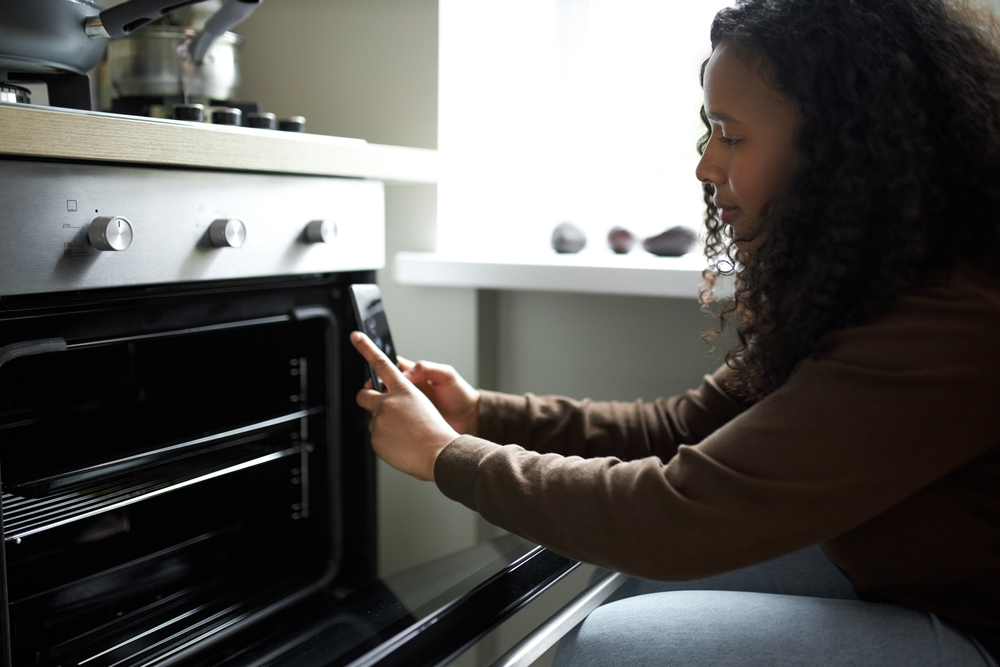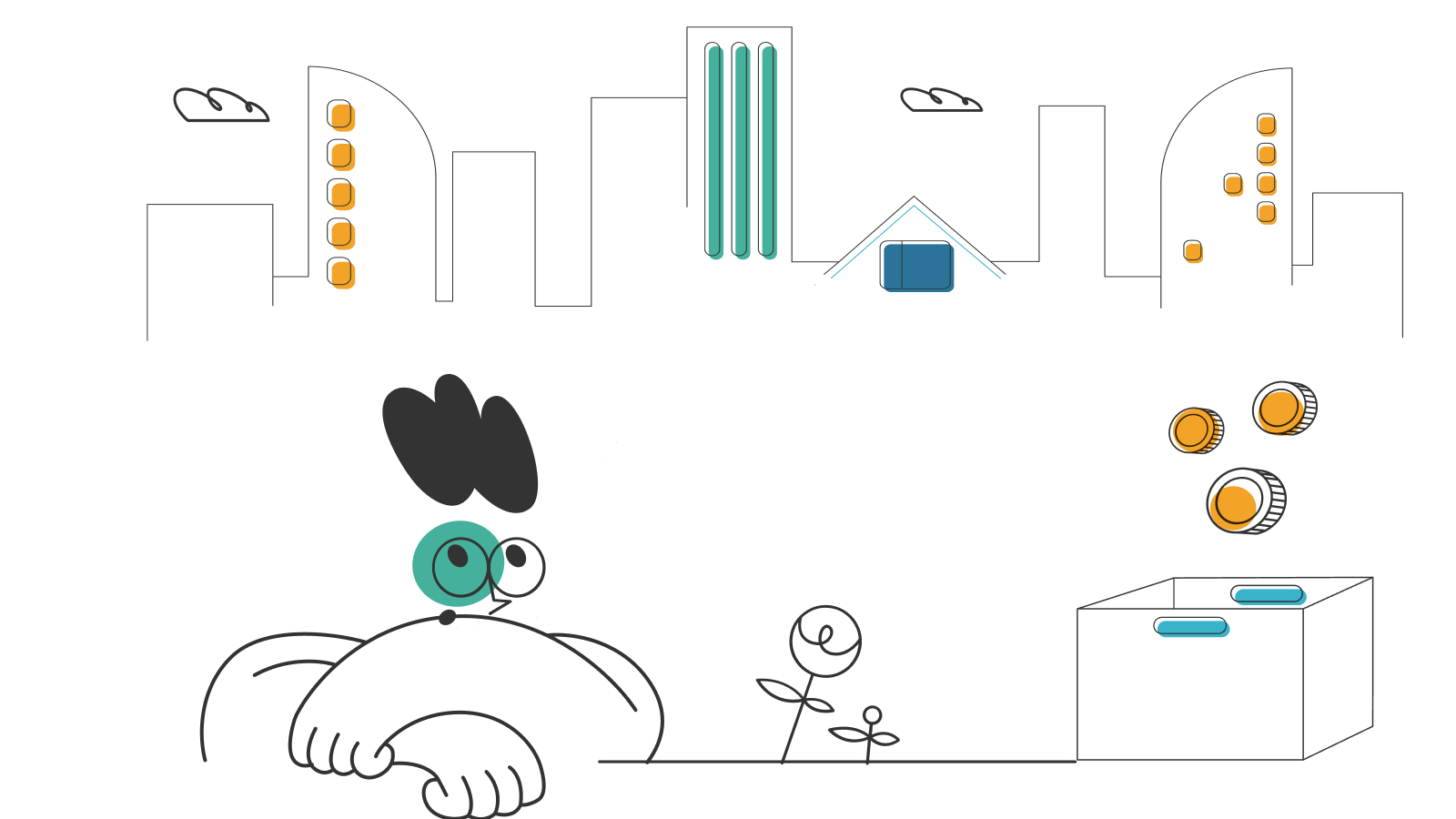What Exactly Does Homeowners Insurance Cover?

Moving soon? Get organized with our free moving checklist.
If you’re asking yourself, “What does homeowners insurance cover?” then your head’s in the right place! Although no one likes to think of the bleak “what ifs” in life, it’s reassuring to know that your home is protected when the unexpected happens. In this easy-to-follow guide, we’ll cover all of the ins and outs of homeowners insurance so that you won’t ever again have to wonder what homeowners insurance covers. Without further ado, let’s delve into homeowners insurance 101!
What is homeowners insurance?
Before we dive into what homeowners insurance covers, let’s address exactly what homeowners insurance is. Homeowners insurance is a form of property insurance that will protect you against damages to the physical structure of your home as well as any personal belongings inside of it. Homeowners insurance will also protect you against liability exposure in case someone is injured on your property during an incident. Your insurance company will assess your situation and provide you with the financial means necessary to get you back on your feet. However, the extent to which your insurance company covers the costs of your incident depends on your policy. Let’s take a look at what a typical homeowners insurance policy will cover.

What does homeowners insurance cover?
A typical homeowners insurance policy will help you cover the following:
- The structure of your home itself and any structure connected to it (i.e. garage or cellar)
- Structures unattached to your home yet still on your property (i.e. shed, guest house, outdoor bar)
- Personal belongings that were damaged inside the structures of your property such as furniture, electronics, or appliances
- Loss of use, in other words, the additional housing and living expenses you will need if your home becomes uninhabitable from covered damages
- Liability coverage in the event that a guest sustains an injury on your property from negligence or uncontrollable circumstances — this may exclude recreational items like pools or trampolines (financial reparations may go towards their medical bills, loss of income, or even a defense lawyer if legal action is taken against you). Check your policy for details.
Now that we’ve run through what a typical homeowners insurance policy covers, it’s important to note that these conditions are still subject to a limited number of perils. Check your own policy for details, but the perils commonly covered in a standard homeowners insurance policy include:
- Lightning
- Windstorms and hail
- Explosion
- Fire and smoke
- Theft
- Vandalism
- Falling objects
- Weight of ice, snow or sleet
- Water damage
It’s also important to note that there are some perils that will not be covered by a standard homeowners insurance policy, including but not limited to, natural disasters, flooding, mold and fungus, or pest infestation. If you’re in an area that is susceptible to any of these risks, or you just want to be extra careful, you may want to add endorsements to your policy. Talk to your insurance company about what your options are and you’ll be well on your way to securing homeowners insurance that covers your needs!

Is homeowners insurance required?
Legally speaking, you are not required to have homeowners insurance. However, your mortgage lender will most likely require that you obtain a homeowners insurance policy when you take out a mortgage. A mortgage lender lends you money so that you can own a house, so it only makes sense for them to ensure that your property is protected. All of that aside, homeowners insurance is still a smart investment as your home will likely be your greatest asset.
How is the price of homeowners insurance determined?
Insurers look at a number of critical aspects to determine your premium. The following factors will determine the price of your homeowners insurance policy:
- The rebuilding cost of your home — In a worst case scenario, your insurance company needs to have the means necessary to rebuild your home, including tearing it down. This is based on construction costs, not to be confused with real estate market value, appraised value, or purchase price.
- The age of your home — If your home has been around for a while, chances are that it has more structural issues and a greater likelihood for claims than a newer home. As a result, insurance companies will likely raise your premiums as they anticipate more claims being made.
- Your city/town’s fire protection rating — The lower the rating, the higher the premium. As your level of risk goes up, so will your homeowners insurance costs.
- Proximity to a fire hydrant — If you’re further than 1,000 feet from a fire hydrant, your premiums will likely be more expensive.
- How close you are to the nearest body of water — If your home is on the water, you have a far greater chance of flooding, water, or wind damage than someone out in the country. Thus, your premium may be higher.
- Recreational items that pose risk for injury — Although pools, trampolines, and swing sets are all meant for good fun, they are another source of potential risk. It’s also important to note that you may not be covered for liability exposure if injuries are sustained on these items even if they are on your property. Check with your carrier to ensure you’re properly covered.
- Your claims history — If you have any claims filed in your history, your premium may increase if you are seen as a riskier individual.
- Multi-policy discounts — Having your auto insured with your home carrier can really help you save. Many carriers will give you 10% off both your auto and home insurance if you package them with the same carrier.
- Your deductible, limits, and coverage — Last but not least, the details of your policy. Expanding your limits of coverage and adding endorsements will increase your premium. Ask your insurance provider how raising your deductible can help you save on your annual premiums.

How do I go about purchasing homeowners insurance?
When purchasing homeowners insurance, it’s important to do your research on your prospective insurance provider. The four top things to consider when searching for an insurance provider are coverage, pricing, customer service reviews, and financial stability (will they be there when you need them?). Make sure you’re shopping for the best value not necessarily the cheapest price.
It’s better to spend the money and be thoroughly protected than spend the bare minimum and regret it later. You’ll also want to look for stellar customer service reviews as these are the people that you’ll be speaking with during some of the most stressful and disastrous moments of your life. If you put careful thought and consideration into the homeowners insurance purchasing process, you can’t go wrong.
Can I keep my current homeowners insurance policy when I move?
You can’t keep your current homeowners insurance policy if you’re moving into a new home. Moving to a new home requires you to purchase a new policy. You may as well shop around to make sure you’re getting the best coverage and price.
Be sure to maintain your existing policy until you have obtained a new one, your home has been sold, and you no longer have ownership of it. This ensures you assume the risk of any damage that may happen during the moving process. You can never be too sure when disaster will strike!

The type of homeowners insurance policy you have can make or break you when the unexpected happens, so it’s crucial that you pay careful attention to what exactly your homeowners insurance covers. We hope that this guide helps you make all the right moves so you can obtain a homeowners insurance policy that’s right for you.













